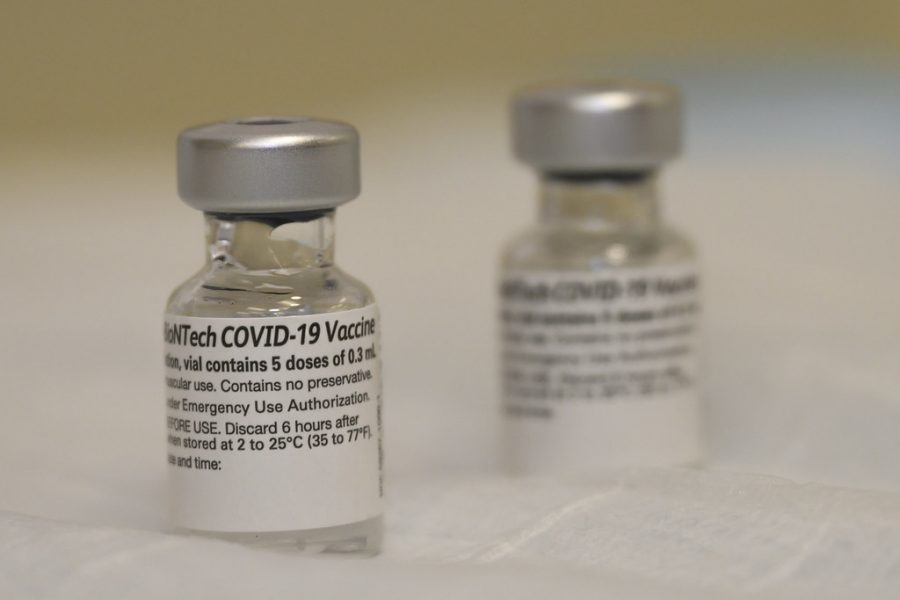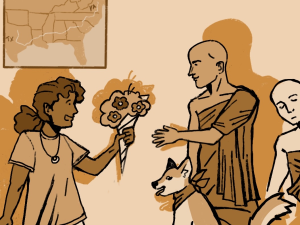CDC-approved website tries to make vaccine search easier
Office of the Secretary of Defen
U.S. Secretary of Defense | Flickr
March 12, 2021
The Centers for Disease Control and Prevention recently approved VaccineFinder.org, a website created to help people locate places to get vaccines and lessen the frustration around booking vaccine appointments.
The COVID-19 vaccine rollout has created problems for people. Some of these issues include the quickness in which vaccines are being administered, eligibility and the long, tedious process of successfully booking appointments. Sign-up sites don’t always share information with one another either.
VaccineFinder is meant to simplify the search for sites offering all authorized COVID-19 vaccines from Pfizer, Moderna and Johnson & Johnson.
According to the CDC, out of 116,363,405 total vaccine doses distributed, only 90,351,750 doses have been administered by March 7. This means vaccines have been sent to states, but not enough people are vaccinated.
“We’re trying to create a trusted site and bring some order to all this chaos and confusion around availability,” said John Brownstein, a researcher at Boston Children’s Hospital who runs VaccineFinder, according to The New York Times.
The site was originally developed in 2009 to help people find places to get vaccinated during the swine flu pandemic, The Hill said. Recently, the site was repurposed to show COVID-19 vaccine availability instead.
The website is run by Boston Children’s Hospital, but it also gets help from other collaborators. Clinics, pharmacies and health departments partner with VaccineFinder to generate the information that the public sees.
To use the site, one just needs to check off what vaccine they desire and then enter their zip code and the distance they are willing to travel. After that, a list of locations will pop up with links and whether there are vaccines in stock, along with a map.
“If the program goes well, the website’s developers plan to expand it nationwide in coming weeks to include nearly all vaccine providers that agree to be featured,” The New York Times said. With the anticipated expansion of the website’s information, VaccineFinder is “far more comprehensive than anything that exists now.”
Even though VaccineFinder is a step forward in helping the public get vaccinated, people cannot book appointments on the site itself. Therefore, the website does not address constraints like the fact there is a limited supply of vaccines.
Experts believe that the addition of a site like VaccineFinder will only add to confusion among the public. For instance, some people may be under the impression that this website will not only tell you where you can go to access a vaccine but help them book appointments too, which is not the case.
VaccineFinder could have an accuracy problem. If providers can opt out of being highlighted for vaccinating certain groups of people, that leads to people potentially being misled. Additionally, VaccineFinder relies on locations to provide daily reports of the number of doses available, which creates an opportunity for miscalculation, according to The New York Times.
As a result of vaccine-hunting frustration, some people have taken matters into their own hands. Facebook groups like the DFW Covid Vaccine Finder have become more popular and are aimed at spreading information about location availability. This group has amassed 23.1K members so far.
“Thanks to this group, I finally got my 65+ dad a CVS appointment,” user Claire Lewinski said in a post to the group’s page.
Bots are another method people have turned to. Bots are autonomous programs on the internet that scan overwhelmed websites and send alerts in the form of text notifications or Twitter notifications when slots open for appointments, the Associated Press mentioned. These bots are generally overseen by people.
Unfortunately, some public health officials have concerns over bots because they can create unfair advantages for some. In fact, “scalper” bots allow people to automatically book appointments to offer up for sale, and slots still fill up quickly, the AP said.
“The system was already favoring the tech-savvy and the person who can just sit in front of their computer all day, hitting refresh,” computer programmer Noah Marcus said, according to the AP.
Another issue is that bots and other websites may collect information from a site whose owner does not want their data collected. Some believe that the federal government should create a centralized sign-up system because states are slower at vaccine rollout on their own.
Luckily for New York residents, they have websites from the local government instead of from specific pharmacies and locations, so it is a single source that is consistent. There is a hotline for vaccine information for the whole state and for New York City, people have access to the NYC COVID–19 Vaccine Finder.
VaccineFinder is another resource that the public to learn more about the vaccine rollout and get vaccinated as soon as they can.







